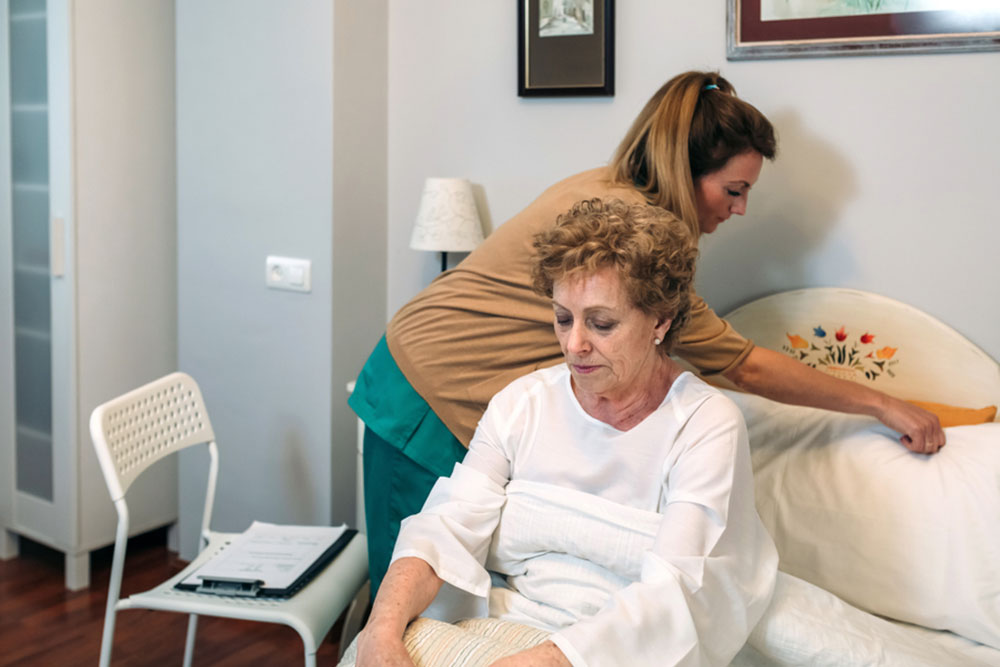Comprehensive Guide to Supporting Cancer Patients with Compassionate Care
This article provides an in-depth guide on supporting cancer patients effectively, emphasizing emotional support, practical care, and open communication. It offers actionable strategies for caregivers, family members, and healthcare providers to enhance patients’ quality of life during treatment. From managing daily responsibilities to fostering emotional resilience, the article equips readers with essential tools for compassionate and comprehensive cancer care.

Comprehensive Guide to Supporting Cancer Patients with Compassionate Care
Early detection of cancer is crucial for effective treatment and improving patient prognosis. When diagnosed early, treatments can be more targeted and successful. However, as cancer progresses and spreads, the focus of treatment shifts toward palliative care, symptom management, and slowing down the disease’s advancement. The prolonged treatments and their side effects often lead to significant physical and emotional challenges for patients. During this difficult journey, both patients and their families face a complex web of emotional turmoil, physical exhaustion, and logistical challenges.
As the disease advances, patients often experience a decline in their independence, requiring more intensive support and care from family members, friends, or healthcare professionals. Providing consistent and compassionate support can greatly enhance the quality of life for cancer patients, helping them navigate the complexities of treatment and emotional struggles. Caregivers play an indispensable role in this process, whether they are family members, close friends, or trained healthcare providers.
Effective caregiving involves a combination of emotional support, practical assistance, and proactive problem-solving. Recognizing the critical role that caregivers play in the well-being of cancer patients, here are some essential strategies to provide meaningful and compassionate support:
Offer Emotional Reassurance: Cancer treatments can be physically taxing and emotionally draining. Patients often experience feelings of fear, anxiety, and helplessness. Providing emotional stability involves listening patiently, offering words of encouragement, and validating their feelings. Simple gestures like holding their hand, offering a comforting word, or simply being present can help patients feel supported, understood, and less isolated during this vulnerable time.
Organize Daily Responsibilities Effectively: Managing a cancer patient's daily routine is vital. This includes overseeing medication schedules, noting any side effects, and ensuring timely communication with healthcare providers. Caregivers should keep meticulous records of treatment plans and symptoms to inform medical decisions. Creating an organized calendar or checklist can help ensure nothing is overlooked, reducing stress for both patients and caregivers. Additionally, coordinating with other family members or healthcare staff ensures that care responsibilities are well distributed and responsibilities are clearly defined.
Develop Strong Problem-Solving Skills: Cancer care often involves unexpected challenges. Sudden side effects, emergencies, or logistical hurdles can arise without warning. Being proactive, prepared, and adaptable is essential. Educating oneself about common complications and having contingency plans ready can make a significant difference. Seeking advice from healthcare professionals or experienced caregivers can enhance problem-solving capacity. It's equally important for caregivers to remain calm and composed, offering reassurance to the patient during crises.
Maintain Open, Honest Communication: Building a relationship of trust through transparent dialogue is fundamental. Patients need to feel heard, respected, and involved in decisions about their care. Asking about their preferences, fears, and concerns helps caregivers tailor their support. Clear communication also involves explaining treatment procedures, side effects, and prognosis in an empathetic manner. Ensuring that patients understand their options and feel empowered can significantly improve their emotional resilience and overall treatment experience.
Provide Physical Comfort and Practical Support: Ensuring that patients are physically comfortable is essential. This includes helping with daily activities like bathing, dressing, and nutrition. Additionally, creating a safe and calming environment, managing pain effectively, and encouraging rest are all important. Caregivers should also assist in preparing nutritious meals, managing transportation to medical appointments, and facilitating activities that promote mental well-being, such as light exercise or hobbies, adapted to the patient’s condition.
Encourage Emotional and Psychological Well-being: Beyond physical care, emotional support plays a pivotal role in a patient’s recovery journey. Engaging in meaningful conversations, providing an outlet for expressing feelings, and encouraging participation in support groups can help alleviate emotional burdens. Mental health professionals can also be involved when needed, offering counseling or therapy to help cope with anxiety, depression, or fear associated with cancer diagnosis and treatment.
Foster a Supportive Network: Cancer care is often most effective when it involves a team approach. Building a network of support that includes healthcare professionals, counselors, fellow patients, and community resources can provide comprehensive assistance. Family and friends should coordinate their efforts to ensure the patient’s needs are met holistically, preventing caregiver burnout and ensuring sustainable support over the long term.
Educate and Empower Patients: Providing patients with information about their condition and treatment options empowers them to participate actively in their care. Education about managing side effects, recognizing warning signs, and maintaining health becomes a tool for self-efficacy. Empowered patients often have better outcomes, greater emotional resilience, and a more positive outlook on their treatment journey.
Ensure Continuous Support and Follow-up: Cancer care doesn’t end with treatment. Long-term support involves regular check-ups, monitoring for recurrence, and addressing ongoing physical or emotional issues. Caregivers should stay involved, providing encouragement and assistance as needed. Staying informed about new treatments, clinical trials, and supportive care options ensures that patients receive optimal care throughout their journey.
Supporting a cancer patient requires a holistic approach that combines emotional reassurance, practical assistance, proactive problem-solving, and open communication. It demands patience, empathy, and a deep commitment to the patient’s well-being. By adopting these comprehensive caregiving strategies, families, friends, and professionals can significantly improve the quality of life for cancer patients, helping them navigate through their challenging journey with dignity and hope.





